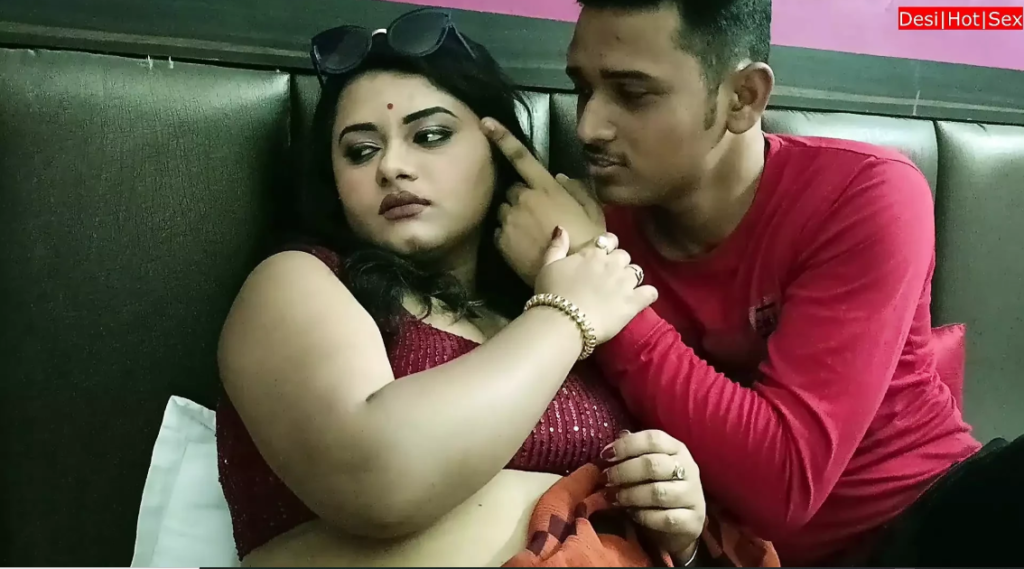Hindi blue films, often referred to as adult films in Hindi, represent a shadowy yet intriguing segment of Indian entertainment. Known colloquially as “blue films in India,” these productions feature explicit content and are typically made outside the boundaries of mainstream cinema like Bollywood. Despite their illegal status, Hindi blue film have carved a niche in Indian adult cinema, fueled by demand and technological advancements. This article provides an in-depth exploration of the industry, covering its history, production, legal challenges, and societal impact. It also includes a detailed profile of a typical performer, shedding light on their life, family, and relationships, as understanding the human element is key to grasping this controversial world. With approximately 2500 words, this SEO-optimized piece aims to inform readers about Hindi blue films while maintaining readability and relevance.
Defining Hindi Blue Films
Hindi blue films are adult films produced in the Hindi language, catering primarily to Indian audiences seeking explicit content. Unlike mainstream Indian adult cinema, which adheres to strict censorship, these films—often dubbed “blue films in India”—focus on sexual themes with little regard for narrative depth. Typically low-budget, they are created in secrecy to evade legal scrutiny. The term “blue film” stems from the bluish tint of early illicit prints, a legacy that persists in modern terminology. Today, adult films in Hindi are widely accessible online, despite being banned, highlighting a disconnect between legal frameworks and public consumption. This section sets the stage for understanding their unique place in India’s entertainment landscape.
Historical Evolution of Hindi Blue Films
The roots of Hindi blue films trace back to the 1970s, when videocassette technology democratized film production. Early adult films in Hindi were often dubbed foreign content or rudimentary local efforts, distributed through underground networks. The 1990s saw a shift as India’s economic liberalization increased access to technology, boosting the production of blue films in India. The internet’s arrival in the 2000s revolutionized Indian adult cinema, enabling discreet distribution and broader reach. While authorities periodically cracked down on physical distribution, digital platforms made enforcement challenging. This historical evolution reflects how Hindi blue films adapted to technological and social changes, cementing their enduring, if controversial, presence in India.
Production Techniques in the Industry
Producing Hindi blue films is a clandestine affair, often executed with minimal resources. Filmmakers use basic digital equipment in makeshift studios or private homes to avoid detection. Unlike Bollywood’s polished productions, adult films in Hindi prioritize speed over quality, with little scripting or rehearsal. Non-professional actors dominate, drawn by quick financial rewards. The underground nature of Indian adult cinema means safety and legal standards are often ignored, exposing participants to risks. Recent technological advancements, like affordable editing software, have lowered entry barriers, allowing more individuals to enter the trade. This section explores how these production methods shape the distinct character of blue films in India.
Distribution and Accessibility Challenges
Historically, Hindi blue films relied on physical distribution—video cassettes sold discreetly by vendors or rented from small shops. Today, the internet dominates, with adult films in Hindi available on unmonitored websites or shared via messaging apps. This shift has made blue films in India more accessible, yet it complicates regulation. Authorities struggle to block offshore platforms hosting Indian adult cinema, ensuring a steady supply despite legal bans. Piracy and anonymity tools further aid distribution, making Hindi blue films a persistent presence. This accessibility underscores the tension between demand and the legal efforts to suppress it, a dynamic central to the industry’s survival.
Legal Status and Regulatory Hurdles
In India, Hindi blue films are illegal under laws like the Indecent Representation of Women (Prohibition) Act, 1986, and obscenity provisions in the Indian Penal Code. The Central Board of Film Certification (CBFC) does not certify adult films in Hindi, barring them from legal exhibition. Enforcement, however, is patchy—raids occur, but the industry’s underground nature limits their impact. Online distribution of blue films in India adds complexity, as foreign-hosted sites evade local jurisdiction. This legal framework creates a precarious environment for Indian adult cinema, where participants risk prosecution yet operate with relative impunity due to lax oversight, highlighting a significant regulatory challenge.
Cultural Impact of Hindi Blue Films
Hindi blue films stir a cultural paradox in India, a nation with conservative values yet a robust demand for adult content. Viewed privately, blue films in India challenge societal norms around sexuality, often clashing with traditional ideas of modesty. Critics argue that Indian adult cinema perpetuates gender stereotypes and objectification, while others see it as a subversive outlet in a repressed society. Public discourse remains polarized, with Hindi blue films embodying both taboo and curiosity. Their cultural footprint reveals a broader tension—India’s outward conservatism versus private consumption patterns—making them a lens through which to examine shifting social attitudes toward adult films in Hindi.
Economic Dimensions of the Industry
Though hard to quantify, the Hindi blue film industry is a lucrative underground market, possibly worth millions. Revenue stems from online subscriptions, pay-per-view models, and informal sales of blue films in India. Low production costs mean even small-scale producers profit, especially with digital reach. However, economic benefits skew toward distributors and producers, leaving performers in Indian adult cinema with meager earnings. The lack of regulation fosters exploitation, with no formal labor protections. This economic structure underscores how Hindi blue films thrive on minimal investment and high demand, a model sustained by the secrecy and scale of adult films in Hindi.
Technological Advancements Shaping the Industry
Technology has transformed Hindi blue films, lowering production barriers and expanding distribution. Digital cameras and editing tools have made creating adult films in Hindi accessible to amateurs, while the internet has shifted blue films in India from physical media to global platforms. This evolution enhances anonymity for producers and consumers but also aids law enforcement tracking efforts. Future innovations, like virtual reality, could redefine Indian adult cinema, offering immersive experiences while intensifying regulatory debates. This section examines how technological shifts have both empowered and challenged the Hindi blue film industry, ensuring its adaptability in a digital age.
Profiles of Industry Performers
Performers in Hindi blue films are often young adults aged 18-35, entering Indian adult cinema for financial gain or limited mainstream opportunities. Many hail from economically disadvantaged backgrounds, viewing blue films in India as a viable, if stigmatized, income source. Careers are typically brief, marked by intense societal judgment and legal risks. Below is a biography table of a typical performer, followed by detailed insights into their life, reflecting the human stories behind adult films in Hindi.
Typical Profile of a Hindi Blue Film Performer
| Category | Details |
|---|---|
| Age Range | 18-35 years old |
| Gender | Mostly female, some male performers |
| Background | Often lower socio-economic, aspiring actors |
| Education | Varies, from minimal to some college |
| Career Length | Usually 2-5 years |
| Motivations | Financial necessity, lack of other opportunities |
| Challenges | Stigma, legal risks, exploitation |
A Performer’s Life in Hindi Blue Films
A typical performer in Hindi blue films might start in their early twenties, drawn by economic need or unfulfilled acting dreams. Life in Indian adult cinema is demanding—long hours, low pay, and secrecy define their routine. They often adopt pseudonyms to shield their identity, balancing work with a hidden personal life. Social isolation is common, as friends may shun them if their role in blue films in India is revealed. Health risks, including STDs, loom large due to unregulated conditions, yet some find empowerment in their autonomy. This duality—struggle and agency—shapes their existence in adult films in Hindi, a world of fleeting rewards and lasting consequences.
Parents of a Performer: The Father
The father of a Hindi blue film performer often hails from a modest background—perhaps a laborer or small farmer in rural India. Unaware of his child’s work in Indian adult cinema, he might cling to traditional values, expecting them to secure a respectable job. Discovery of their role in blue films in India could spark anger or shame, fracturing family ties. His life revolves around survival, not suspecting the secret income supporting him. This disconnect highlights the cultural chasm between generations, where adult films in Hindi remain an unthinkable reality for many parents, leaving the performer to navigate guilt and duty alone.
Parents of a Performer: The Mother
The mother, often a homemaker, mirrors her husband’s conservative outlook, rooted in community norms. She might dote on her child, oblivious to their involvement in Hindi blue films, dreaming instead of their marriage or stability. If exposed, her reaction could range from heartbreak to denial, fearing social ostracism over blue films in India. Her days are filled with household tasks, untouched by the urban underworld of Indian adult cinema. This ignorance shields her but isolates the performer, who bears the burden of secrecy to protect her from the stigma tied to adult films in Hindi.
Relationships: The Partner
If a Hindi blue film performer has a partner, the relationship is often strained by their work. A boyfriend or girlfriend might initially accept their role in Indian adult cinema, drawn by love or pragmatism. Yet, jealousy or societal pressure can erode trust, especially as blue films in India carry heavy stigma. Some partners offer support, sharing the financial benefits of adult films in Hindi, while others demand secrecy or departure from the trade. This dynamic tests loyalty, with the performer juggling intimacy and judgment, a personal battle shaped by the hidden world of Hindi blue films.
Controversies and Ethical Dilemmas
Hindi blue films face criticism for exploitation and moral decay. Performers in Indian adult cinema often lack contracts, leaving them vulnerable to abuse or coercion. Health and safety standards are absent in blue films in India, raising ethical questions about consent and care. Public outrage targets adult films in Hindi as corrupting influences, yet demand persists, exposing hypocrisy. Legal crackdowns aim to curb the trade, but its resilience suggests deeper societal issues. This section probes these controversies, weighing the industry’s impact against the human cost embedded in Hindi blue films.
Conclusion
Hindi blue films, a fixture of Indian adult cinema, navigate a complex web of legality, culture, and technology. This article has unpacked their history, production, and societal role, alongside the lives of those within the industry. Blue films in India persist despite bans, reflecting both demand and defiance. The typical performer’s story—marked by struggle, secrecy, and resilience—mirrors the broader narrative of adult films in Hindi. As India evolves, so too will this industry, challenging norms and inviting scrutiny. Understanding Hindi blue films offers a window into a hidden facet of society, urging thoughtful reflection.
FAQs
Q: Are Hindi blue films legal in India?
A: No, adult films in Hindi are illegal under laws like the Indecent Representation of Women Act, but enforcement is inconsistent.
Q: How do blue films in India differ from Bollywood?
A: Hindi blue films feature explicit content and operate illegally, unlike Bollywood’s censored, mainstream output.
Q: What risks do performers in Indian adult cinema face?
A: They encounter stigma, legal trouble, health risks, and exploitation in the Hindi blue film industry.
Q: How has technology impacted adult films in Hindi?
A: Digital tools and the internet have made production and distribution of blue films in India easier and broader.

